IACC Full Committee Meeting (Virtual)
 Full Meeting Video
Full Meeting Video
 Event Information
Event Information
| Topic | Topic Description |
|---|---|
| Date: | Wednesday, October 26, 2022 |
| Time: | 10:00 a.m. to 5:00 p.m. ET |
| Access: | This was a virtual event and the video will be posted soon. |
| Public Comments: | The IACC welcomes public comment from members of the autism community. Please review IACC's "Spirit of Collaboration," public comment guidelines, and full instructions prior to submitting your comment. The deadline for submission of comments for the October IACC meeting is Tuesday, October 18, 2022. |
| Disability Accommodations: | Captioning will be available. Individuals who need sign language interpreters and/or other reasonable accommodations to participate in this event may contact Rebecca Martin at Rebecca.martin@nih.gov or 301-435-0886. Please make accommodation requests 7 business days prior to the event. The event is recommended for ages 13 and up. |
 Agenda
Agenda
| Time | Event | ||||||
|---|---|---|---|---|---|---|---|
| 10:00 a.m. | |||||||
| 10:15 | |||||||
| 10:25 |
|
||||||
| 11:20 |
Break
|
||||||
| 11:30 | |||||||
| 11:45 |
|
||||||
| 12:30 p.m. |
Lunch Break
|
||||||
| 1:30 |
|
||||||
| 2:20 |
Break
|
||||||
| 2:30 |
|
||||||
| 4:40 |
Round Robin Updates
|
||||||
| 4:55 |
Schedule is subject to change. For more information on upcoming events, please see https://iacc.hhs.gov/meetings/iacc-meetings/
Next IACC Full Committee Meeting:
Wednesday, January 18, 2023, 10:00 a.m. - 5:00 p.m.
- October Meeting Minutes (PDF 375 KB)
 Speakers
Speakers
Scott Michael Robertson, Ph.D.
Senior Policy Advisor, Office of Disability Employment Policy, U.S. Department of Labor
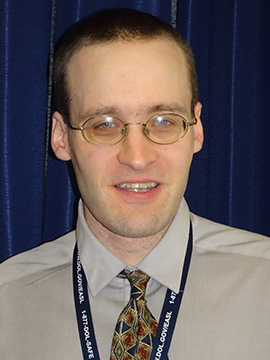
Dr. Scott Michael Robertson is a Senior Policy Advisor in the Office of Disability Employment Policy (ODEP) in the U.S. Department of Labor and an autistic adult. Dr. Robertson orchestrates ODEP's Partnership on Inclusive Apprenticeship (PIA) through his role as the federal project manager; PIA drives policies and practices to increase access to career pathways in high-growth, high-demand fields, such as information technology, cybersecurity, clean and renewable energy, and healthcare. Dr. Robertson spearheads ODEP's work to enhance national autism policy, foster neurodiversity at work, and increase access to gainful employment for youth and adults on the autism spectrum. He has also advised on policy and practices for accessible and emerging technology, such as artificial intelligence and automated vehicles. Earlier in his tenure at ODEP, he advanced policies for school-to-work transition and career development for youth and young adults with and without disabilities. Dr. Robertson has served as a Joseph P. Kennedy, Jr. Fellow for U.S. Senator Tom Harkin in the U.S. Senate Committee on Health, Education, Labor, and Pensions. He also served as the Founding Vice President of the Autistic Self Advocacy Network (ASAN), a national nonprofit organization. Dr. Robertson earned his PhD in information sciences and technology at Penn State University. His professional recognitions include the 2011 Jay S. Drotman Memorial Award from the American Public Health Association and a 2020 Service to the Citizen Award from Dorris Consulting International. He is also an inductee of the Susan M. Daniels Disability Mentoring Hall of Fame.
Ankita Patnaik, Ph.D.
Senior Researcher, Mathematica

Dr. Ankita Patnaik studies employment and family support programs and policies, particularly those geared toward families experiencing low incomes and people with special health care needs. Dr. Patnaik is the project director of the Research Support Services for Employment of Young Adults on the Autism Spectrum project, which is funded by the US Department of Labor's Office of Disability Employment policy. This multi-million dollar initiative aims to identify barriers to and catalysts for improving employment outcomes and career development of young adults on the autism spectrum. Dr. Patnaik also currently leads impact studies on several large multi-site evaluations related to people with disabilities. As the evaluation lead on the Promoting Readiness of Minors in Supplemental Security Income Evaluation (PROMISE), she oversees the impact and benefit-cost evaluations of six PROMISE programs designed to improve educational and employment outcomes for young recipients of Supplemental Security Income and their families. She is also the impact study lead of the Retaining Employment and Talent After Injury/Illness Network Evaluation and Independent Living Services for Minority Youth with Disabilities project. Dr. Patnaik holds a Ph.D. in economics from Cornell University and a M.A. in Economics from the University of Edinburgh.
Paul Shattuck, Ph.D.
Senior Fellow, Mathematica
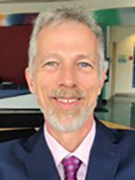
Dr. Paul Shattuck is an expert in autism in adulthood. He pioneered the development of outcome measures for adults on the autism spectrum, and also researches community systems and services, social determinates of health, and the intersection of climate change and public health. His current research focuses on measuring and improving the performance and equity of systems of care for vulnerable populations. This research uses collaborative community engagement. He is also a member of Mathematica's Equity Community of Practice. Before joining Mathematica in 2020, Dr. Shattuck was a professor at Drexel University. He was the founding leader of the A.J. Drexel Autism Institute's Life Course Outcomes Program, the National Autism Data Center, and the Transition Pathways Community Partnership Initiative. He oversaw an integrated strategy for conducting, translating, and disseminating research to improve community-based services and inform national policies aimed at helping teens and adults on the autism spectrum. He also trained in methods of public health surveillance and epidemiology as a postdoctoral fellow funded by the National Institutes of Health at the University of Wisconsin-Madison and was a professor at Washington University in St. Louis. Before his academic career, Shattuck worked in social services doing tenant organizing, developing affordable housing, and designing programs for vulnerable populations-including homeless youth and families, migrant farmworkers, preschool children, and incarcerated men. He has a Ph.D. in social welfare from the University of Wisconsin-Madison.
John Elder Robison
Neurodiversity Scholar in Residence, College of William and Mary
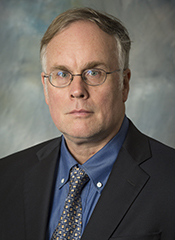
John Elder Robison is the Neurodiversity Scholar at The College of William and Mary and advisor to the neurodiversity institute at Landmark College. He is autistic and has an autistic son. Mr. Robison served two terms on the Interagency Autism Coordinating Committee. Mr. Robison also served on the board of the International Society for Autism Research (INSAR). He remains a neurodiversity advisor to the Lawrence Livermore National Lab. Mr. Robison has also served on World Health Organization committees that have created the standard definitions of autism and exceptionality for the world. Robison is also the NY Times bestselling author of Look Me in the Eye, Be Different, Raising Cubby, and Switched On. In addition, he has authored hundreds of articles for the public; and for educators, scientists, and medical professionals.
Yulanda Harris, Ed.D., CNP
Certified Neurodiversity Professional/CEO, Trainingphase
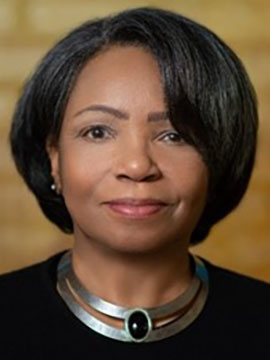
Dr. Yulanda Harris has spent over 30 years in Training & Development and Talent Management working in various industries. She currently works as a Chief Organizational Development Officer for a non-profit. She designs, implements, and evaluates change management initiatives, assesses organizational needs, and facilitates the Coalition’s professional development and continuous learning process. Her extensive mentoring and coaching skills allow her to develop and facilitate programs to remove barriers, challenging a team, and fostering team management, thereby assisting organizations to become immediately resourceful. Her company, Trainingphase, provides consulting services to help organizations improve their talent management process by attracting and increasing the tenure of current and future neurodivergent employees. Throughout her career, she has developed and implemented a wide range of diversity training initiatives along with a portfolio of leadership and professional development classes and workshops. Her training on “Work-Life Balance” received Continuing Education Units (CEUs) for the Ohio Nurses Association. In 2018, Dr. Harris was officially diagnosed as being on the Autism Spectrum, which was a defining moment as her life would change. As a result, she became a certified neurodiversity professional and self-advocate. Dr. Harris received her Doctorate in Educational Leadership & Management and Master’s in Human Resource Management.
Ruth Jones
Family Member
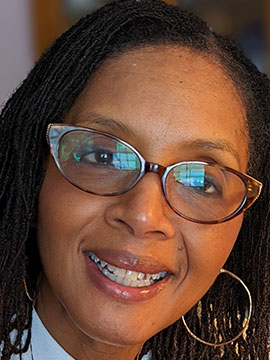
Ms. Ruth Jones is the sister and legal guardian for her autistic brother, Peter Jones. At 62 years old, she has spent the last 60 years learning how to be a more understanding sister to Peter. However, in the past five years, her concerns for her brother have been coupled with the challenge of learning how to be a more informed and effective legal guardian to him. Ms. Jones' experience and exposure to the Autism Spectrum Disorder (ASD) have come directly from growing up beside Peter. Peter, the youngest sibling in the family, and Ms. Jones, the second youngest, grew up with five older siblings. She spent her youth observing her parents struggle to find appropriate education for their youngest child in 1960s before the word "autism" was well known. She also worked at camps for autistic individuals in the late 1970s. She later observed parents struggle to find appropriate workshops for her brother when he graduated from special needs high school in the 1980s. She finally watched her parents struggle to find a permanent home for their youngest child as they contemplated their own inability to care for him long-term as they aged. Finally, after a couple of failed group home experiences for Peter, he was permanently placed at the Carolina Living and Learning Center (CLLC) where he resides today. Along with her family, she continued to learn about ASD through conventions, workshops, and numerous meetings with the professionals that have cared for Peter at CLLC for near 31 years. Ms. Jones is a sister and loved one that has spent most of her life deeply involved in the needs and care for a special person on the autism spectrum.
Lisa Morgan
Founder and Co-Chair, Autism and Suicide Committee of the American Association of Suicidology
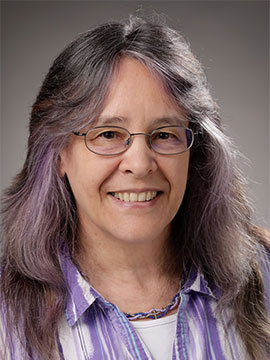
Ms. Lisa Morgan is the founder and co-chair of the Autism and Suicide Committee of the American Association of Suicidology. She is a subject matter expert on crisis supports and suicide prevention for autistic people. Ms. Morgan is the author of several books, articles, and autism specific resources. She is a consultant on the Patient-Centered Outcomes Research institute (PCORI)’s 9-million-dollar research award to compare two safety plans to support autistic youth and young adults. Ms. Morgan has a master’s degree in the Art of Teaching in Special Education and is currently pursuing a master’s degree in Social Work.
Sue Swezey
Family Member
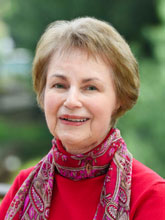
Sue is the mother of an adult son with autism. She co-founded the San Mateo County Autism Society, now part of SFASA, and served on the Executive Committee of the San Mateo County Developmental Disabilities Council. She also served on the Morgan Autism Center Board from 1974-2012. Sue was one of the first to report on uses of technology for special needs and published a special education technology journal from 1981-2009. She lives in Menlo Park with her son John.
Joseph Piven, M.D.
Thomas E. Castelloe Distinguished Professor of Psychiatry and Pediatrics; Director, University Center of Excellence in Developmental Disabilities, University of North Carolina-Chapel Hill
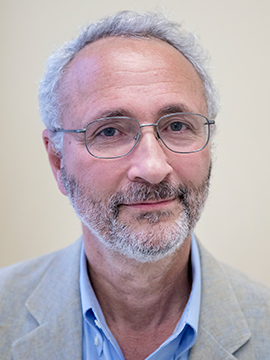
Dr. Joseph Piven is an active clinician and the Thomas E. Castelloe Distinguished Professor of Psychiatry and Pediatrics at the University of North Carolina at Chapel Hill (UNC). Dr. Piven is the director of multiple organizations, including the Carolina Institute for Developmental Disabilities (CIDD), a comprehensive institute for services, research, and training in neurodevelopmental disorders; the North Carolina University Center of Excellence in Developmental Disabilities (UCEDD), funded by the Department of Health and Human Services and Administration for Community Living; and one of 14 NICHD-funded Intellectual and Developmental Disabilities Research Centers. He directs an NIH-funded postdoctoral research training program in neurodevelopmental disorders at UNC and has been the Principal Investigator of an NIH-funded Autism Center of Excellence Network study of brain development in infants at risk for autism for 15 years. Dr. Piven is the founding Editor of the Journal of Neurodevelopmental Disorders. His research is focused on the pathogenesis of autism and related neurodevelopmental disorders. Dr. Piven received his M.D. degree from the University of Maryland in 1981 and completed training in general and child and adolescent psychiatry at the Johns Hopkins Hospital in Baltimore. He continued in research training in the genetics of neurobehavioral disorders during a postdoctoral John Merck Fellowship at Johns Hopkins with Dr. Susan Folstein, and he was part of the faculty of the Department of Psychiatry at the University of Iowa from 1990 through 1999.
Marsha Mailick, Ph.D.
Emeritus Vice Chancellor for Research and Graduate Education; Vaughan Bascom and Elizabeth M. Boggs Professor, University of Wisconsin-Madison
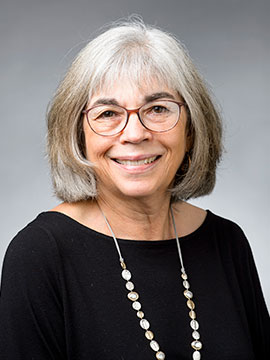
Dr. Marsha R. Mailick is the Emeritus Vice Chancellor for Research and Graduate Education and the Vaughan Bascom and Elizabeth M. Boggs Professor at the University of Wisconsin-Madison. From 2002 to 2014, she served as the Director of the Waisman Center and principal investigator of the Waisman Center's Intellectual and Developmental Disabilities Core Grant. The focus of Dr. Mailick's research is on the life course trajectory of developmental disabilities. She is interested in changes in the behavioral phenotype of specific developmental disabilities, including autism, fragile X syndrome, and Down syndrome, during adolescence, adulthood, and old age. In addition, she studies how the family environment affects the development of individuals with disabilities during these stages of life. Her research includes a two-decade longitudinal study of autism, a decade-long study of fragile X syndrome and related disorders, and research on demographically-representative populations of parents of individuals with developmental disabilities. These studies offer specific insights about developmental disabilities across the life course, including midlife and older age.
 Materials
Materials
- Draft of April 2022 IACC Meeting Minutes (PDF 54 KB)
- Combined Document
- Individual Chapters
- Introduction
- Chapter 1: Screening and Diagnosis
- Chapter 2: Biology
- Chapter 3: Genetic and Environmental Factors
- Chapter 4: Interventions
- Chapter 5: Services and Supports
- Chapter 6: Lifespan
- Chapter 7: Infrastructure and Prevalence
- Cross Cutting Chapter on Sex and Gender
- Cross Cutting Chapter on Promoting Equity and Reducing Disparities
- COVID-19 and the Autism Community: Impact and Lessons Learned
- Budget Recommendation
- Statement on Duplication of Effort
- Conclusion
- Recognition of National Disability Employment Awareness Month (NDEAM)
- U.S. Department of Labor, Office of Disability Employment Policy
- National Disability Employment Awareness Month 2022 News and Events
- U.S. Department of Labor, Office of Disability Employment Policy
- Autism Research at Mathematica, Including Research on Employment of Young Adults on the Autism Spectrum
- Autism in Older Adulthood - Panel and Presentation
- Autism Speaks
- Autism Speaks
- Robison JE. Autism prevalence and outcomes in older adults Autism Res. 2019 Mar;12(3):370-374. doi: 10.1002/aur.2080. Epub 2019 Feb 25. PMID: 30803153.
- Smith DaWalt L, Hong J, Greenberg JS, Mailick MR. Mortality in individuals with autism spectrum disorder: Predictors over a 20-year period Autism. 2019 Oct;23(7):1732-1739. doi: 10.1177/1362361319827412. Epub 2019 Feb 28. PMID: 30818975; PMCID: PMC6713622.
- Smith LE, Maenner MJ, Seltzer MM. Developmental trajectories in adolescents and adults with autism: the case of daily living skills J Am Acad Child Adolesc Psychiatry. 2012 Jun;51(6):622-31. doi: 10.1016/j.jaac.2012.03.001. Epub 2012 Apr 24. PMID: 22632621; PMCID: PMC3361701.
- Trainingphase
- National Autism Coordinator Update (PDF - 276 KB)
- Federal Agency, Public Member, and Community Updates (PDF - 312 KB)
 Slides
Slides
- IACC Meeting Full Slide Deck (PDF - 6 MB)
 Public Comments
Public Comments
- Oral and Written Public Comments (PDF - 687 KB)
- Full Meeting Transcript (PDF – 493 KB)


